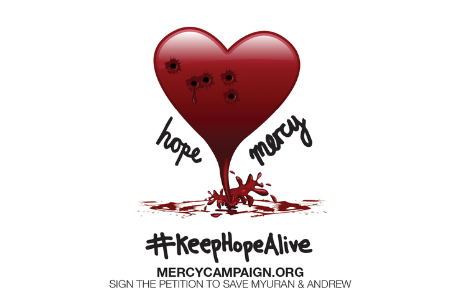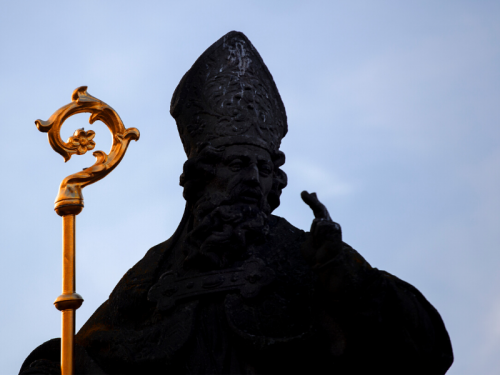The question of who Jesus is isn’t new to our day and age. Even while Jesus walked the planet, people were debating this question. Listen to what the Bible says:
“Among the crowds there was widespread whispering about him. Some said, “He is a good man.” Others replied, “No, he deceives the people” (John 7:12).
“Once Jesus asked his disciples, “Who do the crowds say I am?” They replied, “Some say John the Baptist; others say Elijah; and still others, that one of the prophets of long ago has come back to life.” Then Jesus asked, “But what about you? Who do you say I am?” Peter answered, “You are the Messiah” (Luke 9:18-20).
Even people who believe in Jesus have all kinds of opinions and portrayals of him. There's hippy Jesus who teaches everyone to give peace a chance, imagine a world without religion, and helps us remember all you need is love. He walked around Galilee sporting Hebraic dreads and eating mysterious-yet-kosher plants that gave him moments of groovy wisdom. “Man, you should totally give stuff to the poor”
There's Macho Jesus who was all man all the time – wild at heart, some might even say. He was rugged, worked a job in construction, and man-ish to the extreme. Fundamentalist Jesus is macho Jesus after drinking several gallons of Hater-aide. This is the Jesus you see picketing at inappropriate events and holding up unkind signs that marginalise the already marginalised.
There's pop Jesus. Yes, you guessed it: Jesus is your homeboy. He’s a hipster who wants to “kick it” with you. He walked around two thousand years ago and tried to show people a good time. When you feel down, his goal is to give you a hug of optimism. When times are tough, he’s conveniently the name that you can call upon (sometimes via the curse word) to make sure everything is gonna be alright. When times are good, he’ll keep his distance and not interfere too much with your life. This Jesus exists to make sure we’re all happy campers.
There’s Starbucks Jesus who drinks fair trade coffee, loves spiritual conversations, drives a hybrid and goes to film festivals.
Open-minded Jesus loves everyone all the time no matter what, except for people who are not as open-minded as you.
Sporting Jesus determines the outcome of football games and helps Christian athletes run faster and jump higher than non-Christians.
Gentle Jesus is meek and mild, with high cheekbones, flowing hair, and walks around barefoot, wearing a sash.
There’s Yuppie Jesus who encourages us to achieve our full potential, reach for the stars, and buy a boat.
Spiritual Jesus hates religion, churches, pastors, priests, and doctrine; and would rather have people out in nature, finding the god within and listening to mystical musical.
Cliche Jesus is good for Christmas and Easter services and greeting cards; he inspires people to believe in themselves, and lifts us up so we can walk on mountains.
Revolutionary Jesus teaches us to rebel against the status quo and blame things on the “system.”
Guru Jesus is a wise, inspirational teacher who believes in you and helps you find your center.
Then there's Judge Jesus who gave us a list of rules and then left us to try and keep them and punishes us when we don't.
Last, but not least, is good-example Jesus who shows you how to help people, change the planet, and become a better you.
I heard it said once that in the beginning God made people in His image – and ever since we've tried to return the compliment. It certainly seems that way with all of these "images" of Jesus. But what is Jesus really like? Who is he really? One of my favorite authors, C.S. Lewis, explains the answer in the best way.
Lewis was raised in a religious Irish family, but became an atheist at a young age when he came to view his faith as a chore and a duty. He later described his young self as being ironically “very angry with God for not existing.”
Lewis's interest in the works of Scottish author and Minister George McDonald was part of what turned him from atheism. He slowly re-embraced Christianity, influenced by arguments with his Oxford colleague and friend J. R. R. Tolkien (author of The Hobbit and Lord of the Rings). He fought greatly up to the moment of his conversion, noting that he was brought into Christianity like a prodigal, "kicking, struggling, resentful, and darting his eyes in every direction for a chance to escape."
He says, “You must picture me alone in my room, night after night, feeling, whenever my mind lifted even for a second from my work, the steady, unrelenting approach of Him whom I so earnestly desired not to meet. That which I greatly feared had at last come upon me. In the Trinity Term of 1929 I gave in, and admitted that God was God, and knelt and prayed: perhaps, that night, the most dejected and reluctant convert in all England."
After his conversion to theism in 1929, Lewis converted to Christianity in 1931, following a long discussion and late-night walk with his close friend Tolkien. He records making a specific commitment to Christian belief while on his way to the zoo with his brother. He became a member of the Church of England – somewhat to the disappointment of Tolkien, who had hoped that he would join the Catholic Church.
During the Second World War, C.S. Lewis gave a number of lectures on BBC radio, talks that later became the source of his book, “Mere Christianity.” In one of those lectures he said this:
“I am trying here to prevent anyone saying the really foolish thing that people often say about [Jesus]: I’m ready to accept Jesus as a great moral teacher, but I don’t accept his claim to be God. That is the one thing we must not say. A man who was merely a man and said the sort of things Jesus said would not be a great moral teacher. He would either be a lunatic — on the level with the man who says he is a poached egg — or else he would be the Devil of Hell. You must make your choice. Either this man was, and is, the Son of God, or else a madman or something worse. You can shut him up for a fool, you can spit at him and kill him as a demon, or you can fall at his feet and call him Lord and God, but let us not come with any patronizing nonsense about his being a great human teacher. He has not left that open to us. He did not intend to. … Now it seems to me obvious that He was neither a lunatic nor a fiend: and consequently, however strange or terrifying or unlikely it may seem, I have to accept the view that He was and is God.”
Then Jesus asked, “But what about you? Who do you say I am?” Peter answered, “You are the Messiah." What is your answer to that question? Who do you think Jesus is? Eternity hangs upon your correct response.








